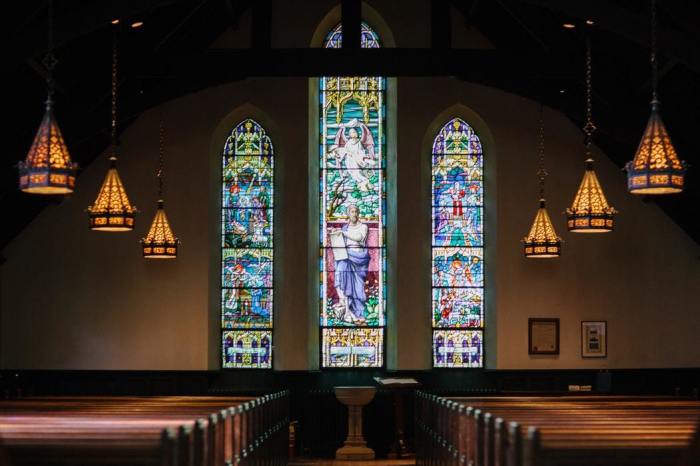Church attendance still below pre-pandemic levels despite slight uptick, new data shows

Religious worship service attendance in the United States is still below pre-COVID-19 pandemic levels despite a slight increase in the last two years, with a slightly steeper decline among Catholics than Protestants, survey data suggests.
Gallup released updated results of a long-running polling data asking Americans about their religious practices Monday. The poll, conducted May 1-24, is based on the responses of 1,011 adults and has a margin of error of +/-4 percentage points.
Overall, Gallup found that 31% of Americans attended religious services at a church, mosque, synagogue or temple in the past week online or in person, an improvement from the 30% who said the same in 2020 and 2022 as well as the 29% measured in 2021.
The 31% weekly attendance rate remains lower than the 34% recorded in 2019, the last full year before the outbreak of the COVID-19 pandemic that led to restrictions on in-person church services and the ascent of virtual church services.
From 2016 through 2019, Gallup's church attendance rates registered at 34%, dropping to 31% between 2020 and 2023.
While 44% of Protestants said they attended church services in the last week on average during 2016-2019, that percentage dropped to 40% between 2020-2023, according to the data. The share of Catholics who attended church dropped from 37% in 2016-2019 to 30% from 2020-2023.
"Sample sizes for those in other religious groups are too small to provide reliable estimates for the period covered in this analysis," Gallup stated in the analysis.
"[I]t is not clear if the pandemic is the cause of the reduced attendance or if the decline is a continuation of trends that were already in motion," the analysis continued, but added, "the temporary closure of churches and ongoing COVID-19 avoidance activities did get many Americans out of the habit of attending religious services weekly."
The survey also found that the pandemic has impacted how people attend services, with a handful of Americans continuing to prefer online worship even after restrictions on in-person services were lifted.
Data collected at the height of the pandemic in the spring of 2020 shows that the share of Americans who attended in-person worship services reached a record low of 3% in May 2020. At the same time, remote church attendance reached a record high of 28%.
The percentage of Americans attending church services in person consistently increased over the past three years and was measured at 26% in Gallup's May 2023 survey. By contrast, the percentage of Americans who attend virtual worship services has declined, reaching a low of 5% in May 2023.
Among the Americans who attend church services weekly, Gallup found that 84% do so in person while 16% tune in to virtual services.
In May, the American Bible Society released a report which found a gradual increase in the number of church attendees who attended church in person instead of virtual, going from 38% in 2021 to 67% in 2023. About one in five churchgoers (21%) say they primarily worship online, down from 45% in 2021.
Gallup finds that the decrease in church attendance rates extended across political subgroups. From 2016 through 2019, 45% of Republicans said they attended church in the past week, along with 30% of independents and 28% of Democrats.
Between 2020 and 2023, 40% of Republicans said they attended church in the last week. In that four-year time frame, the share of both independents and Democrats who attended church was measured at 25%.
Ryan Foley is a reporter for The Christian Post. He can be reached at: [email protected]




























